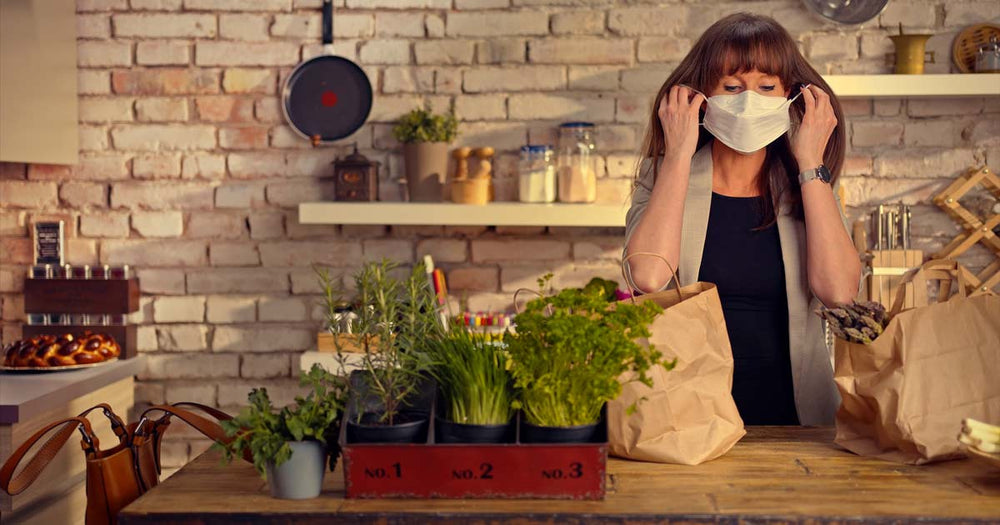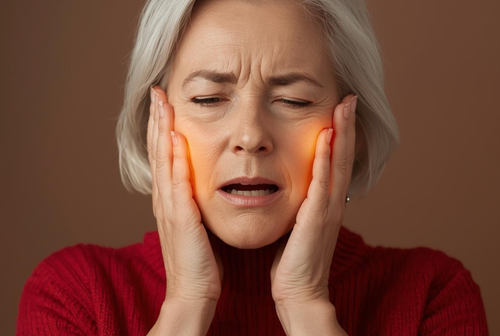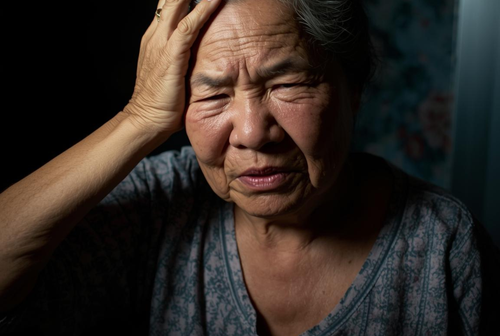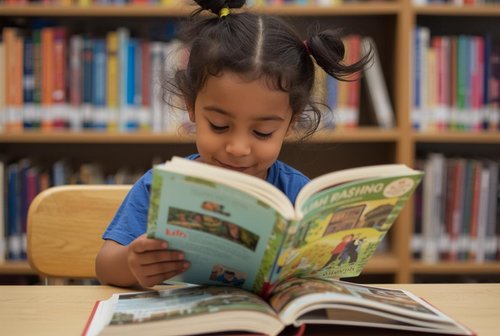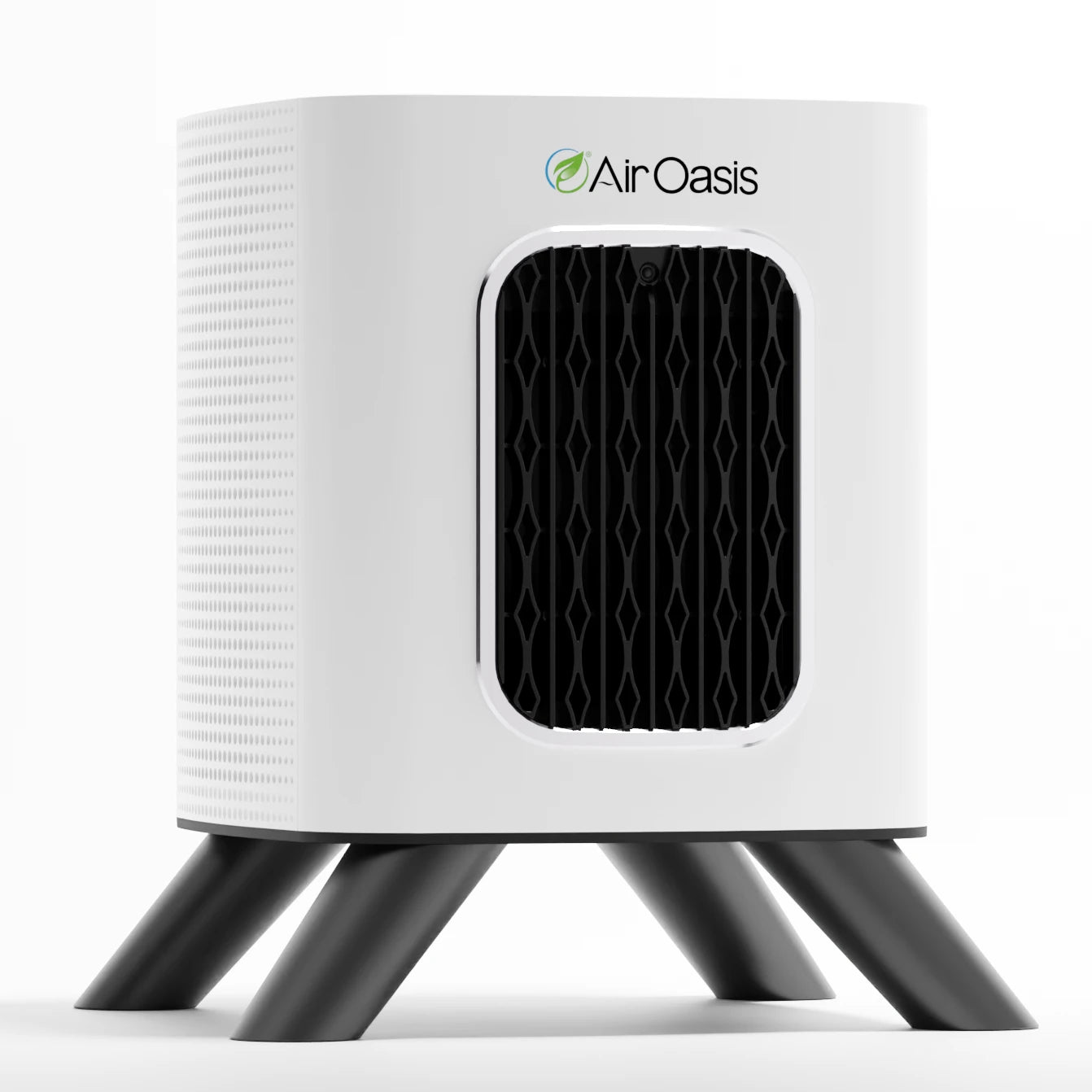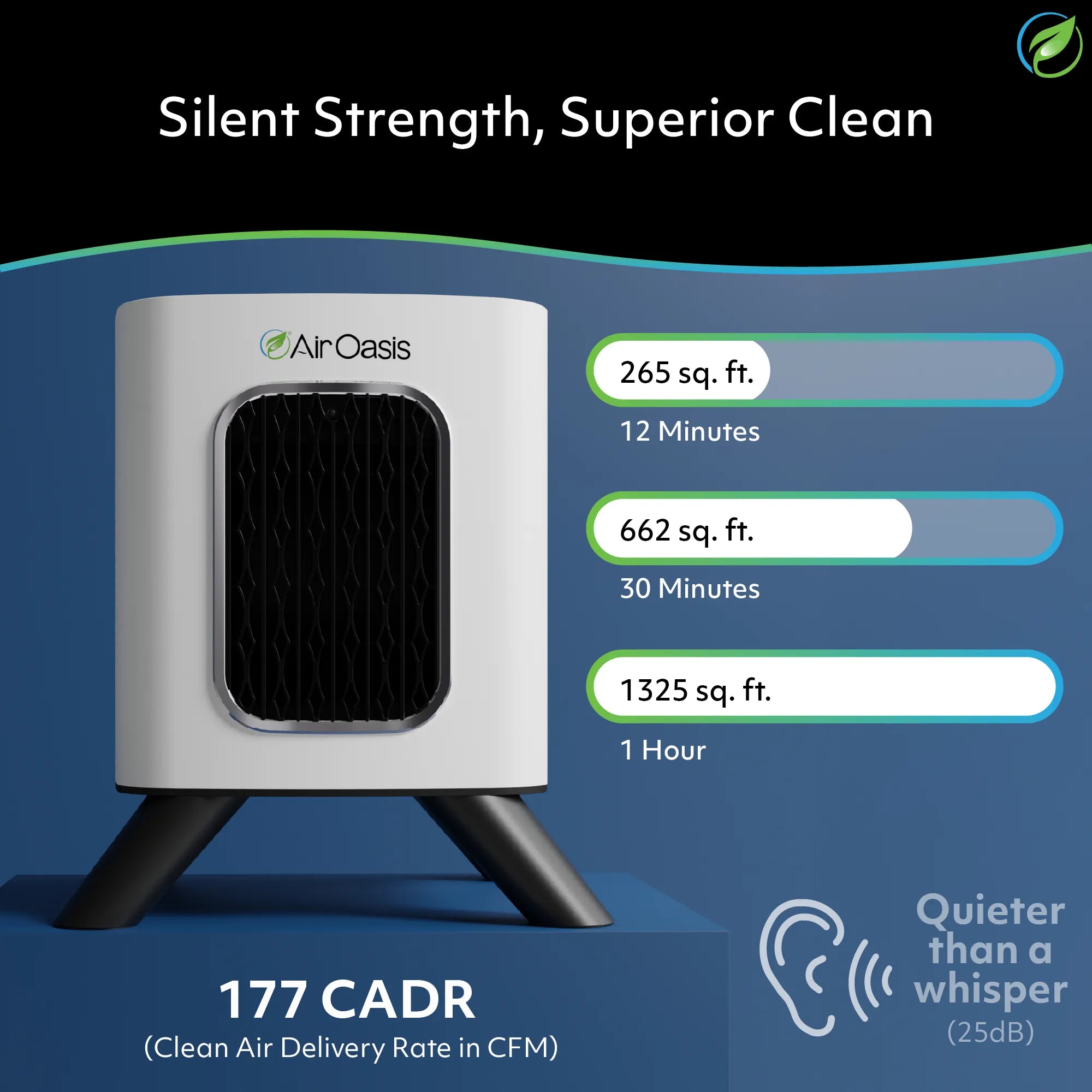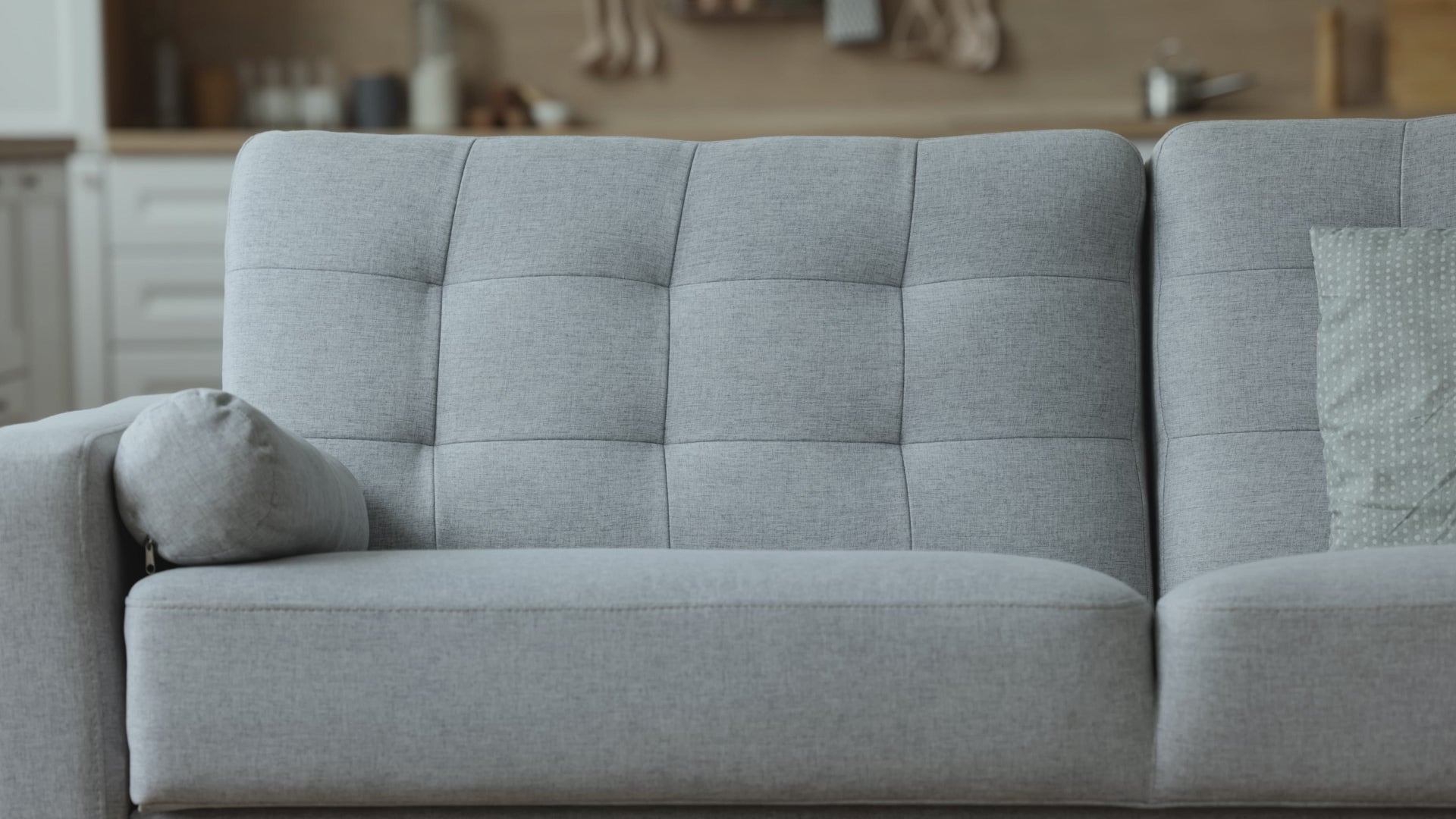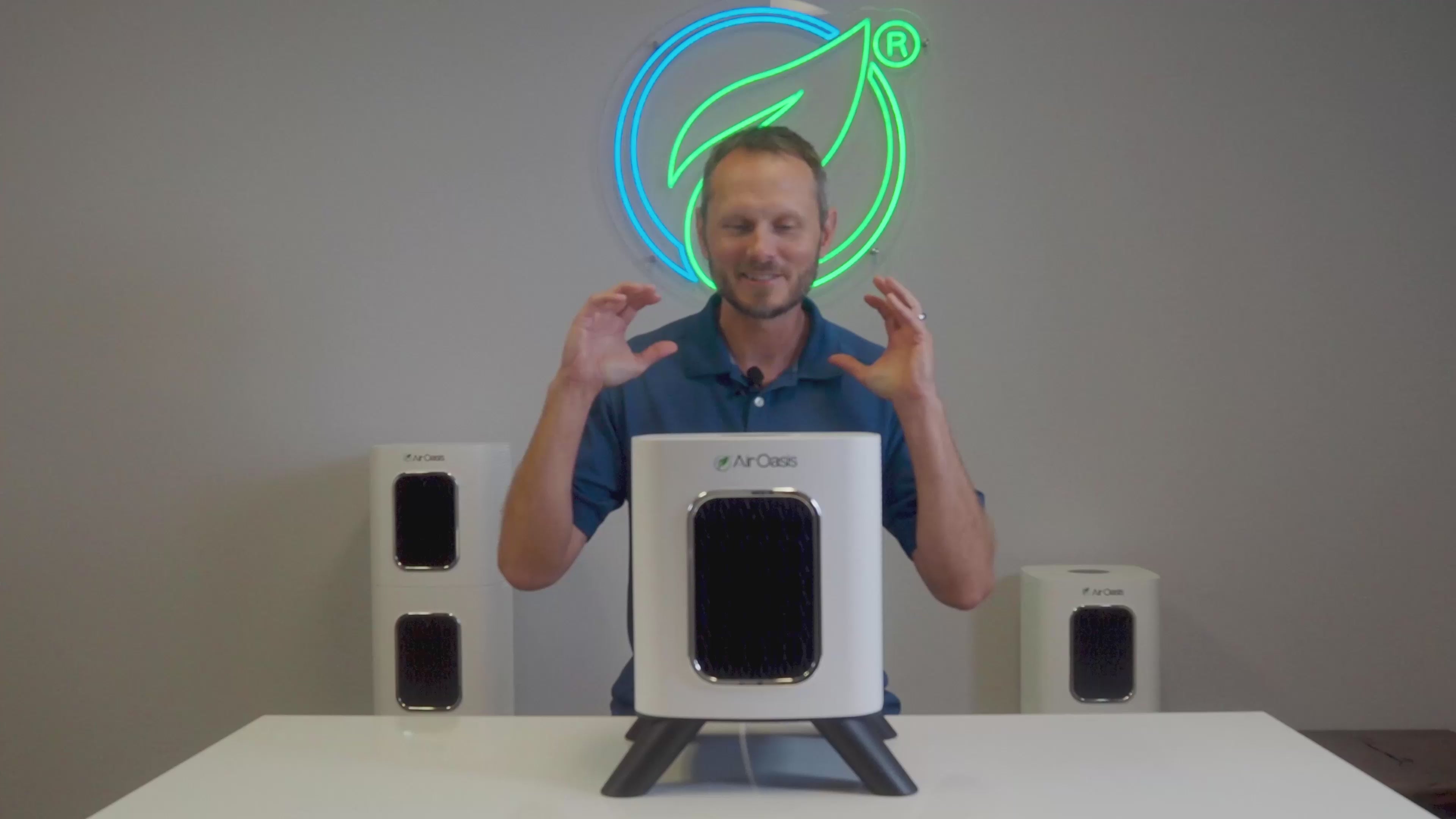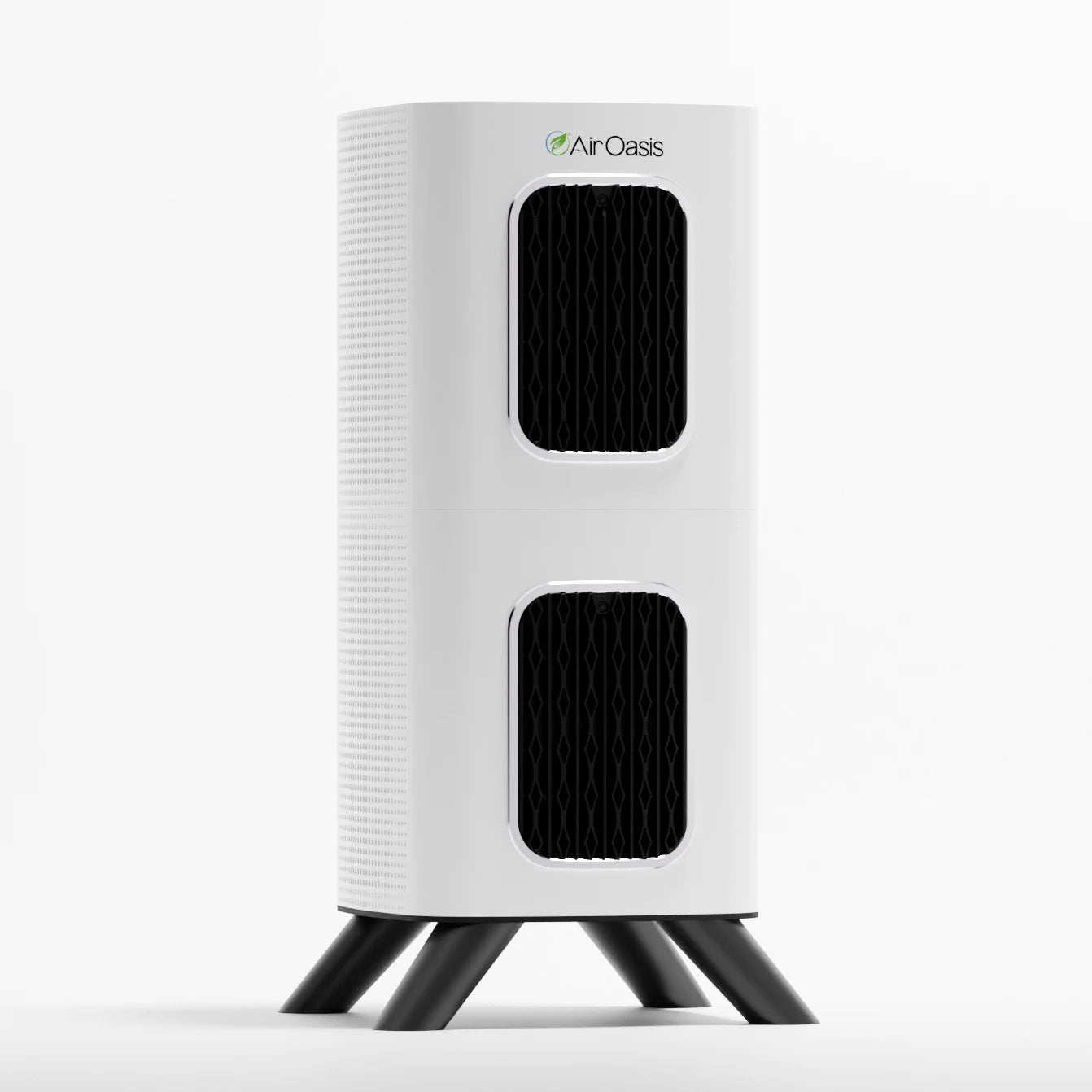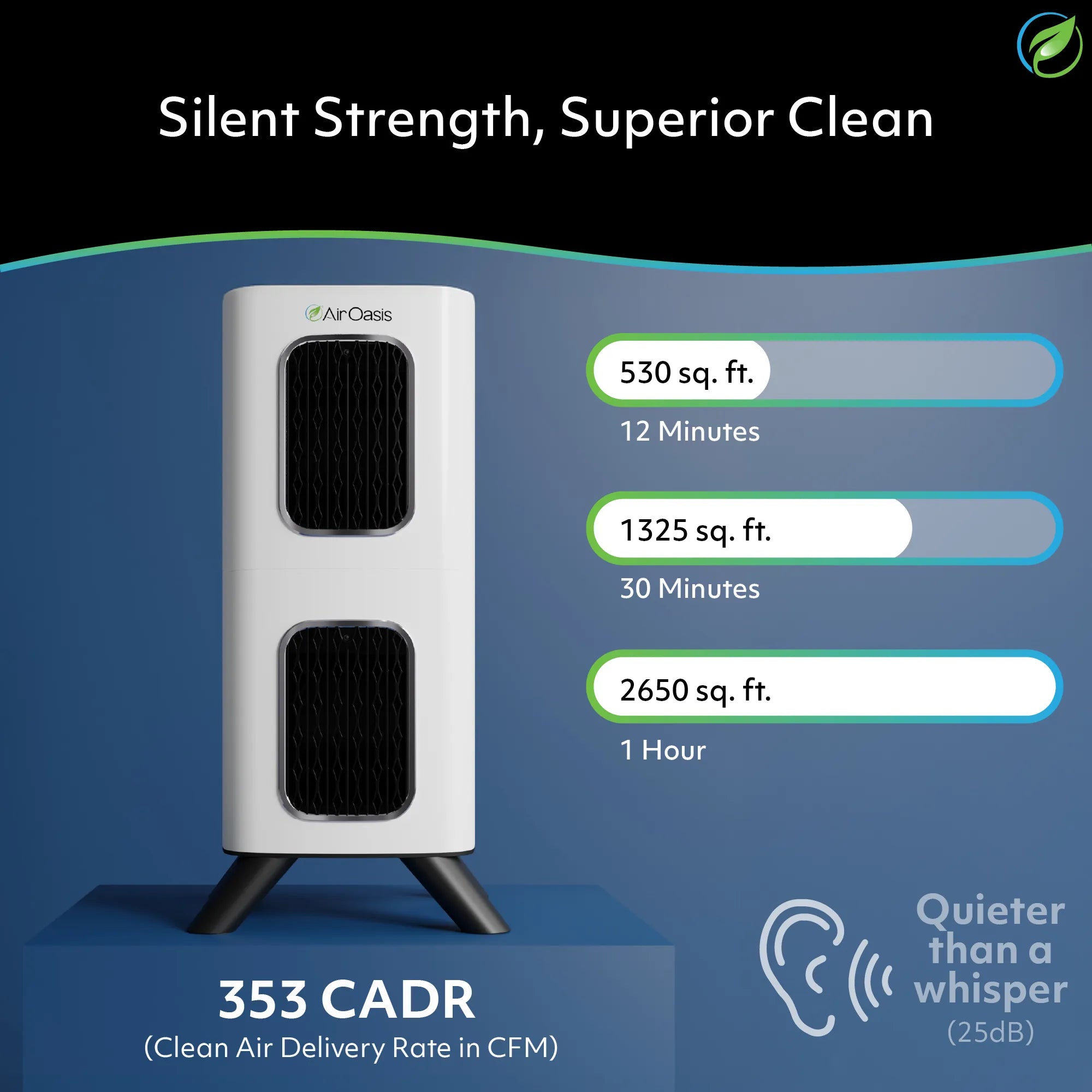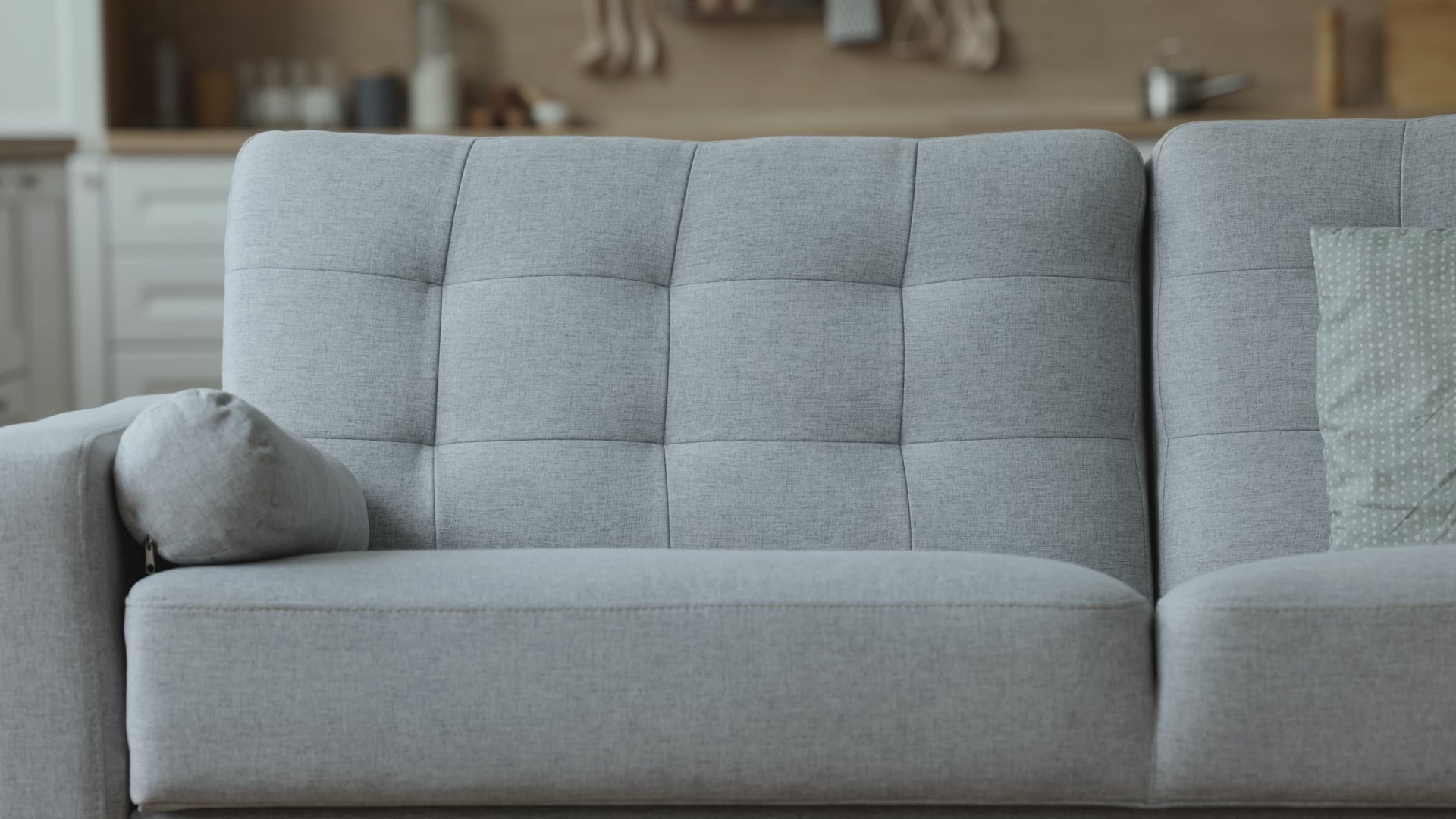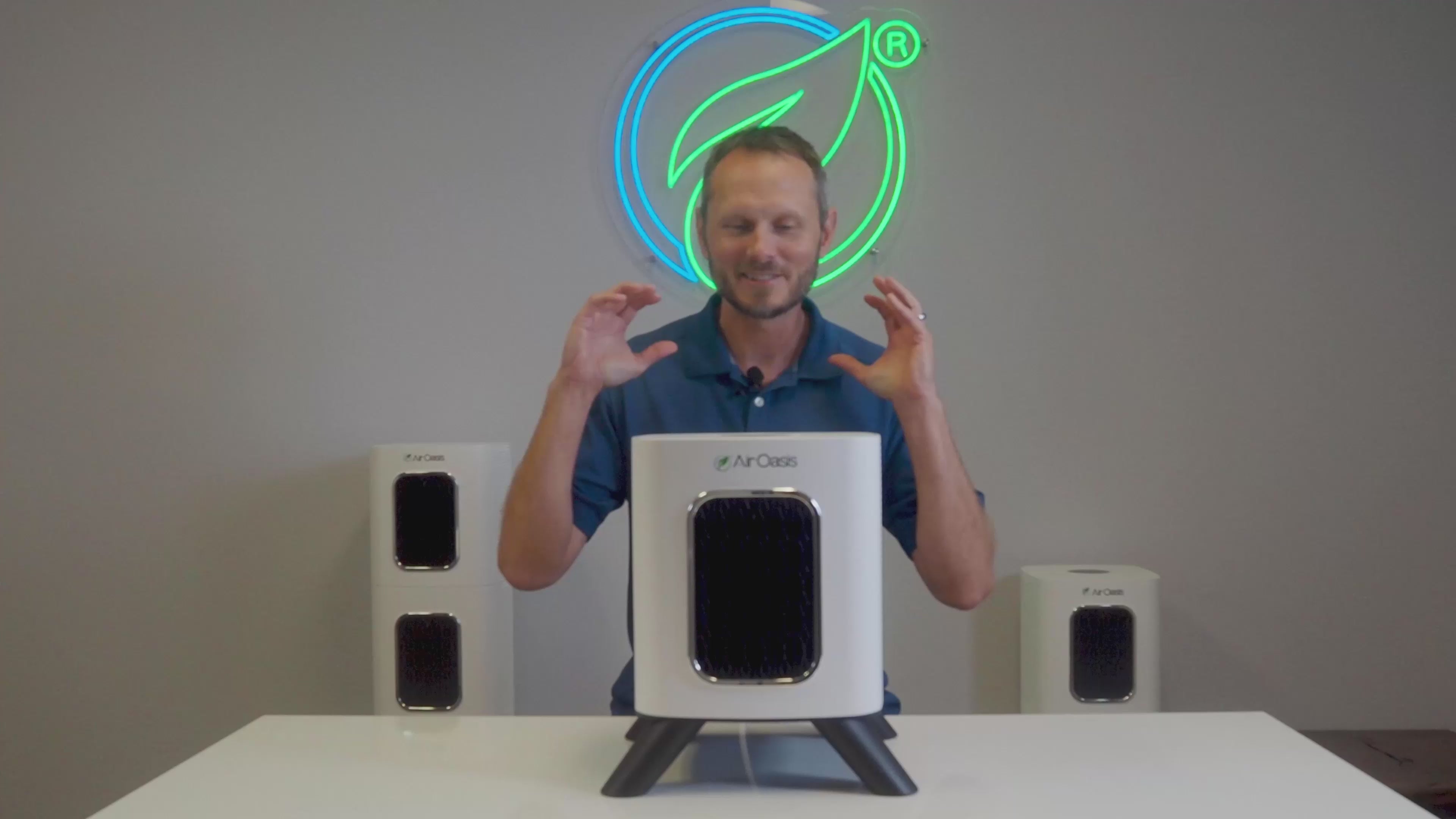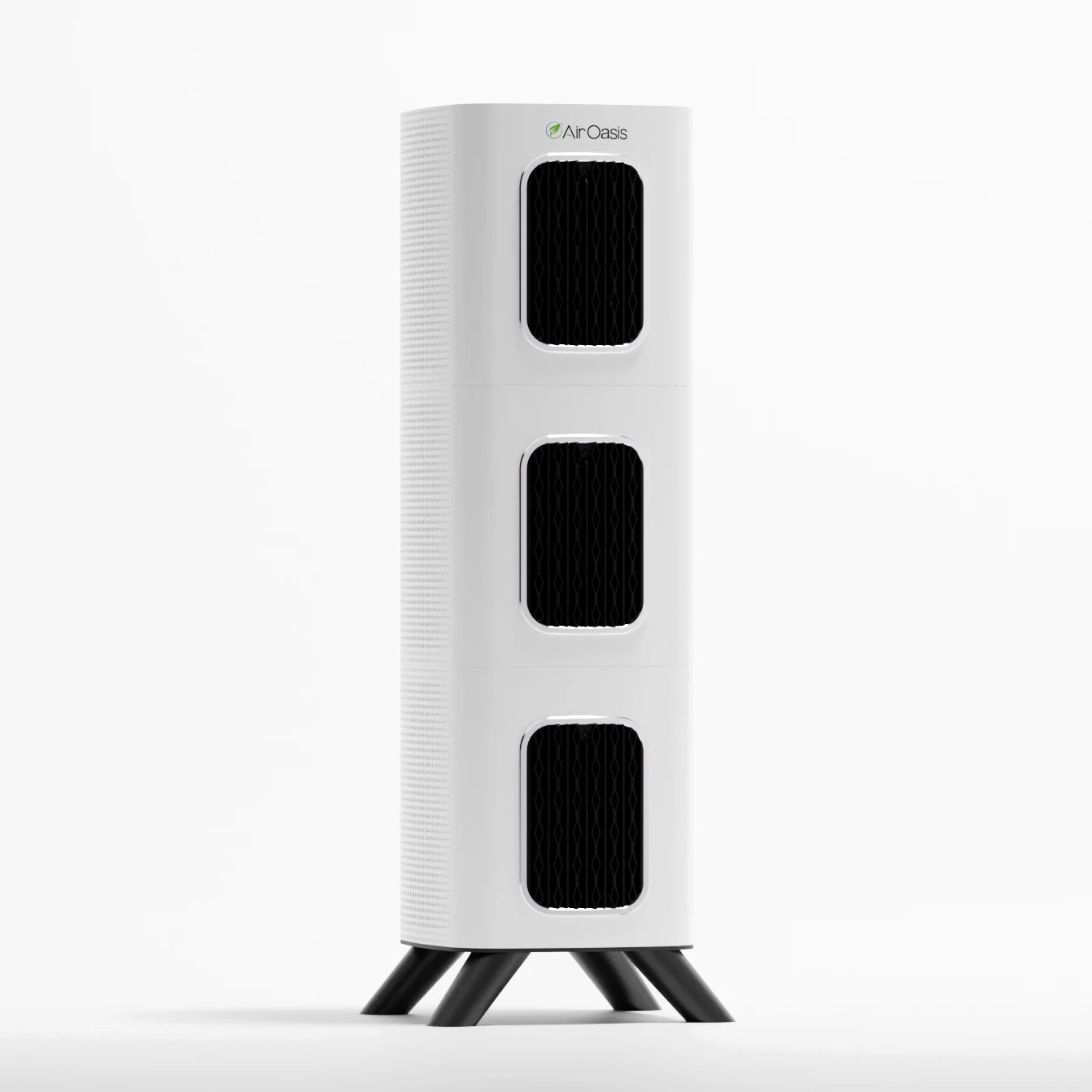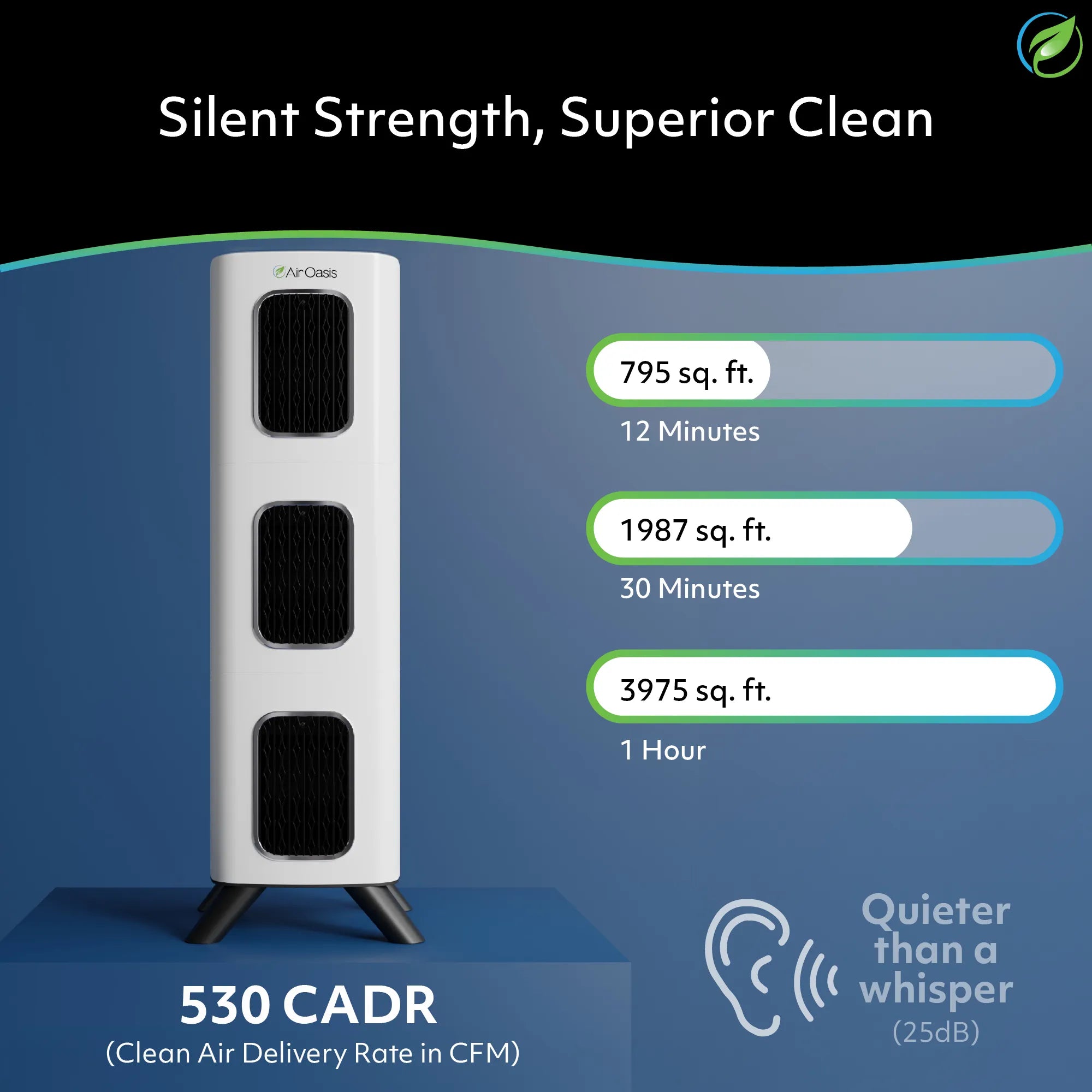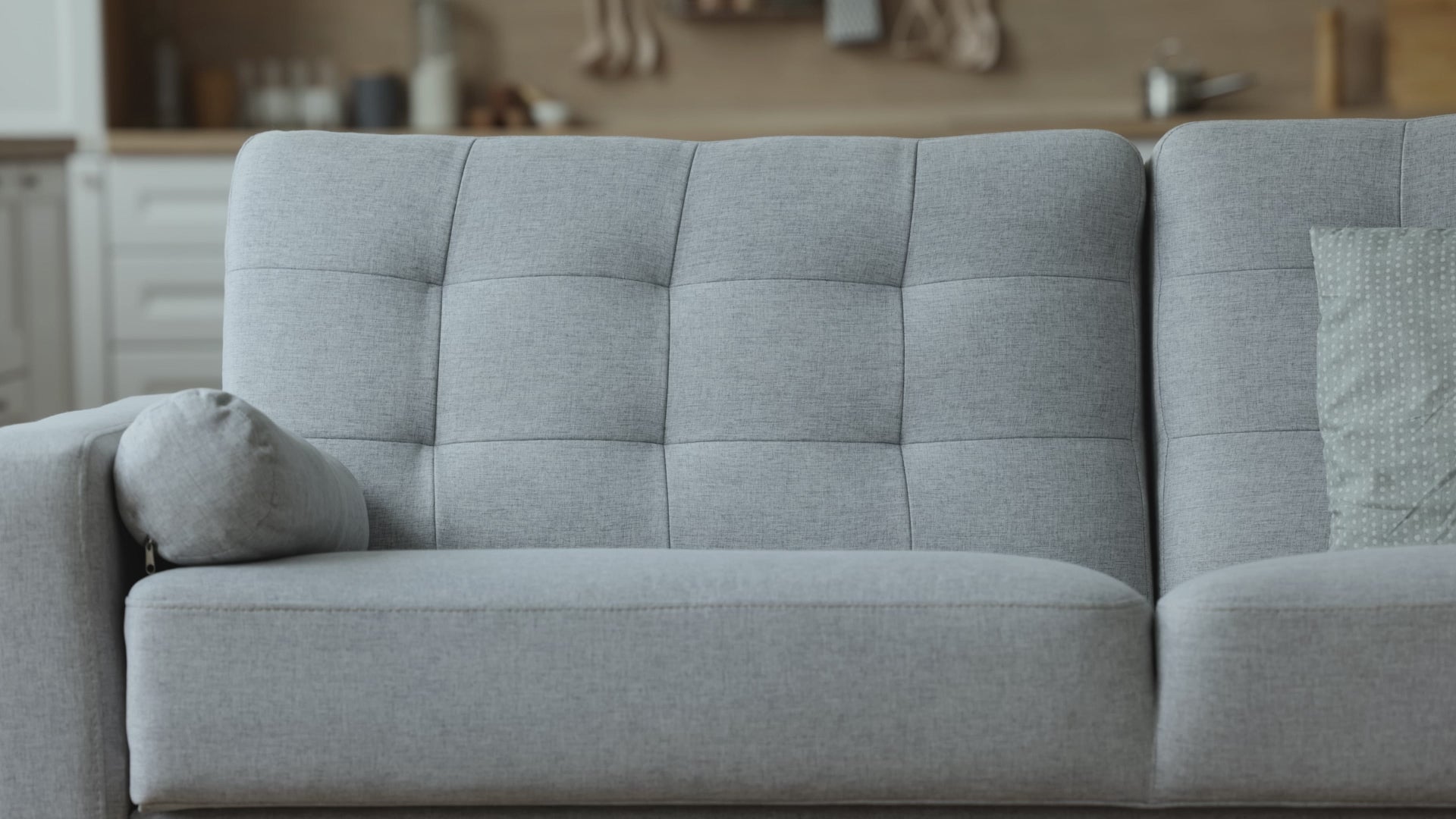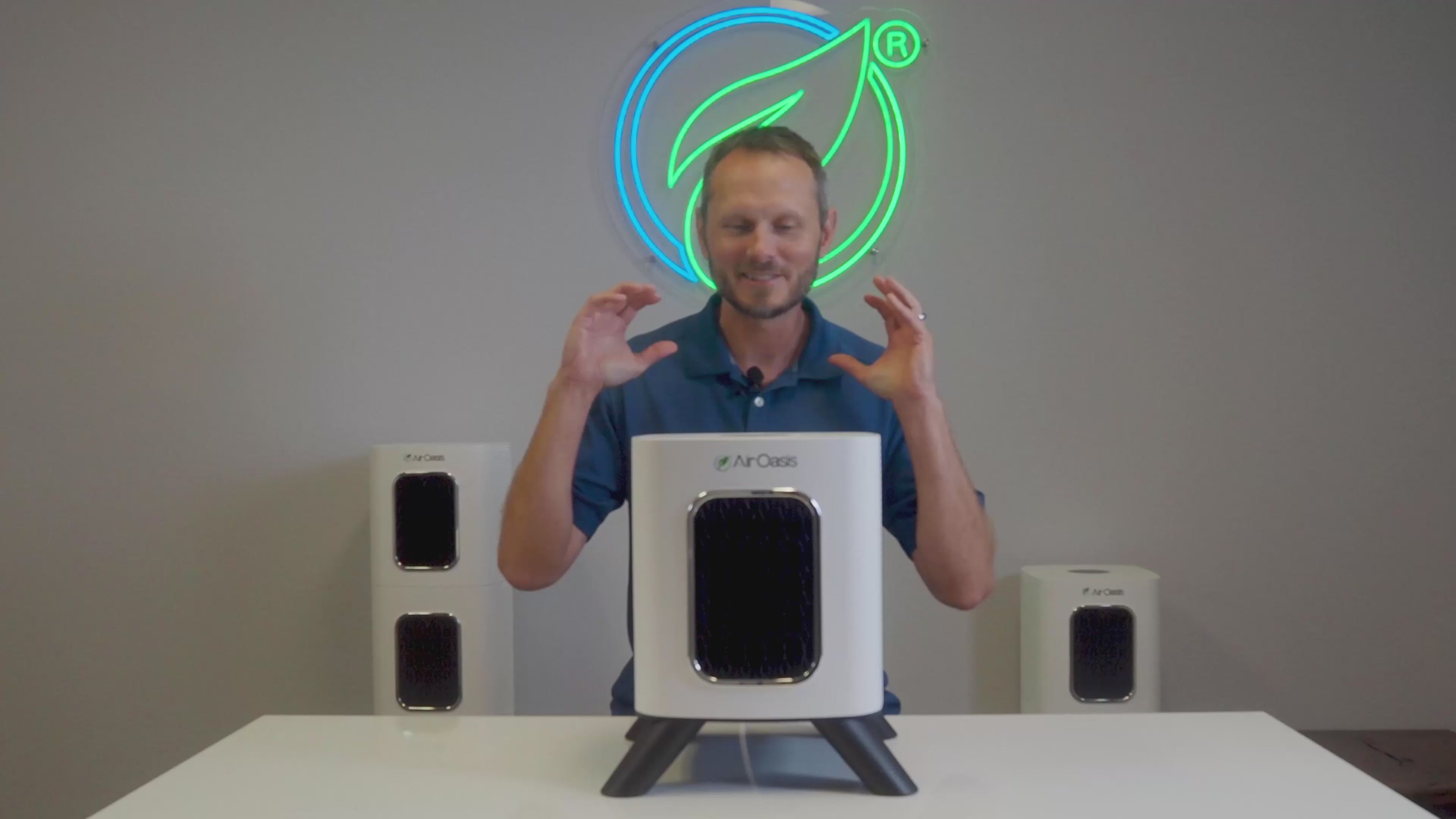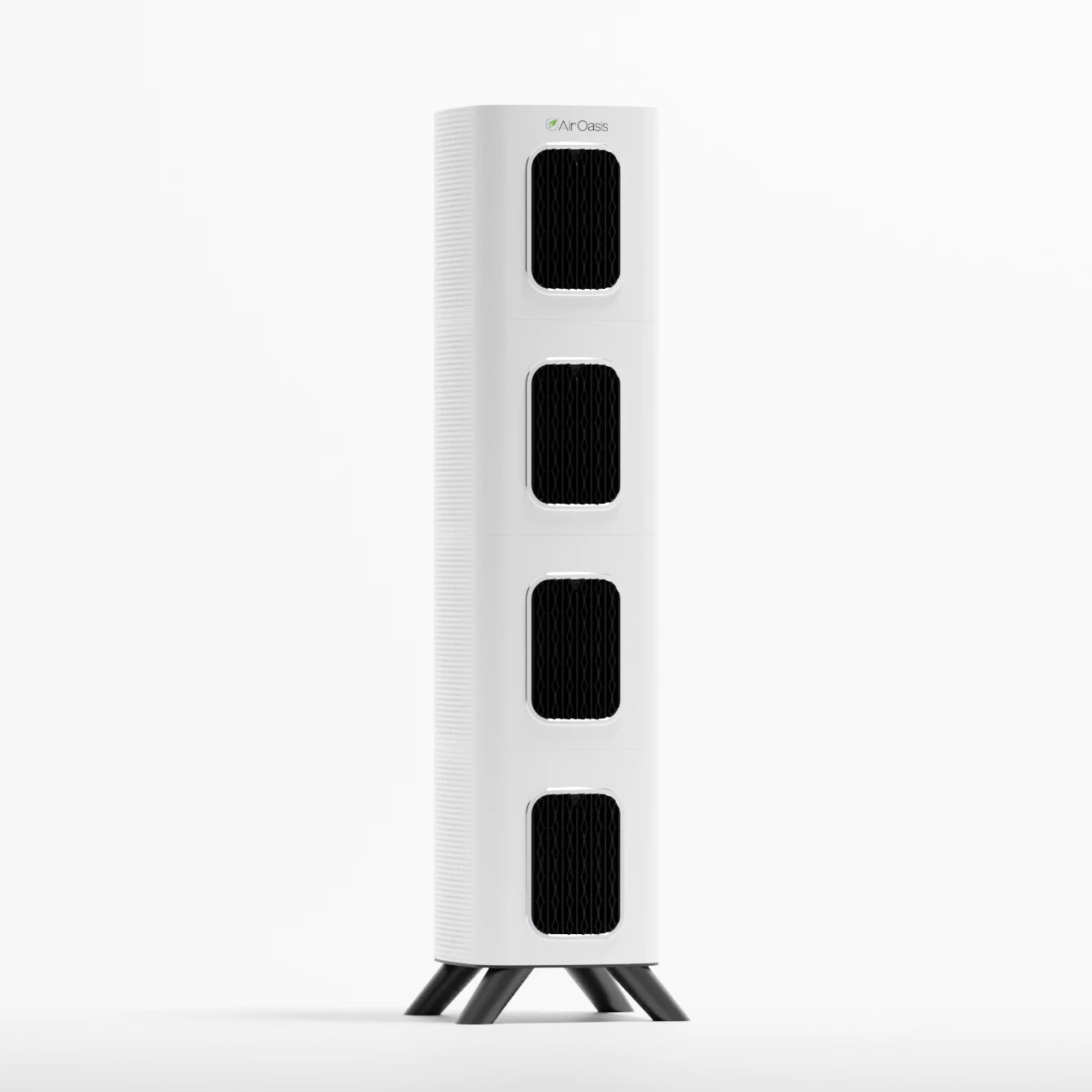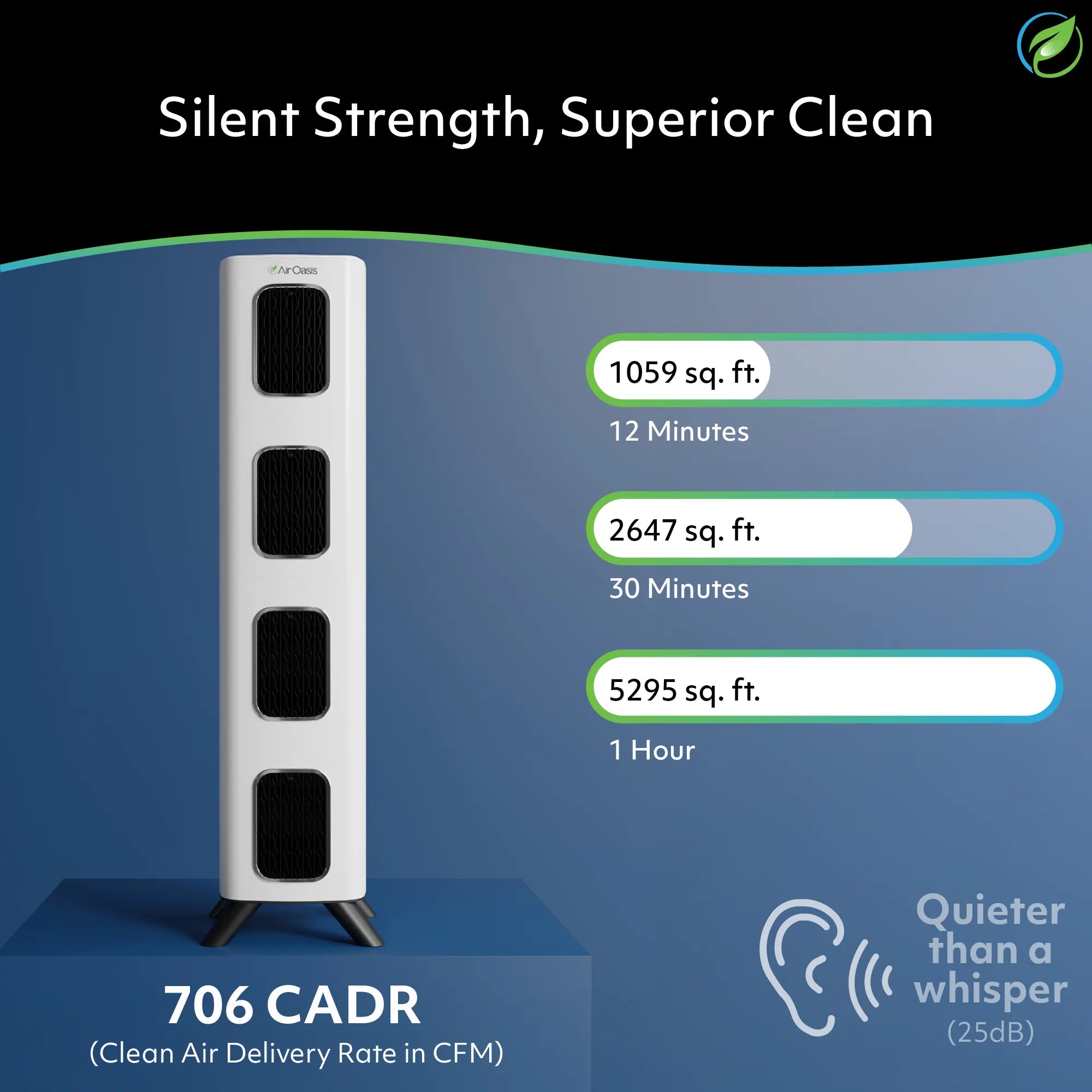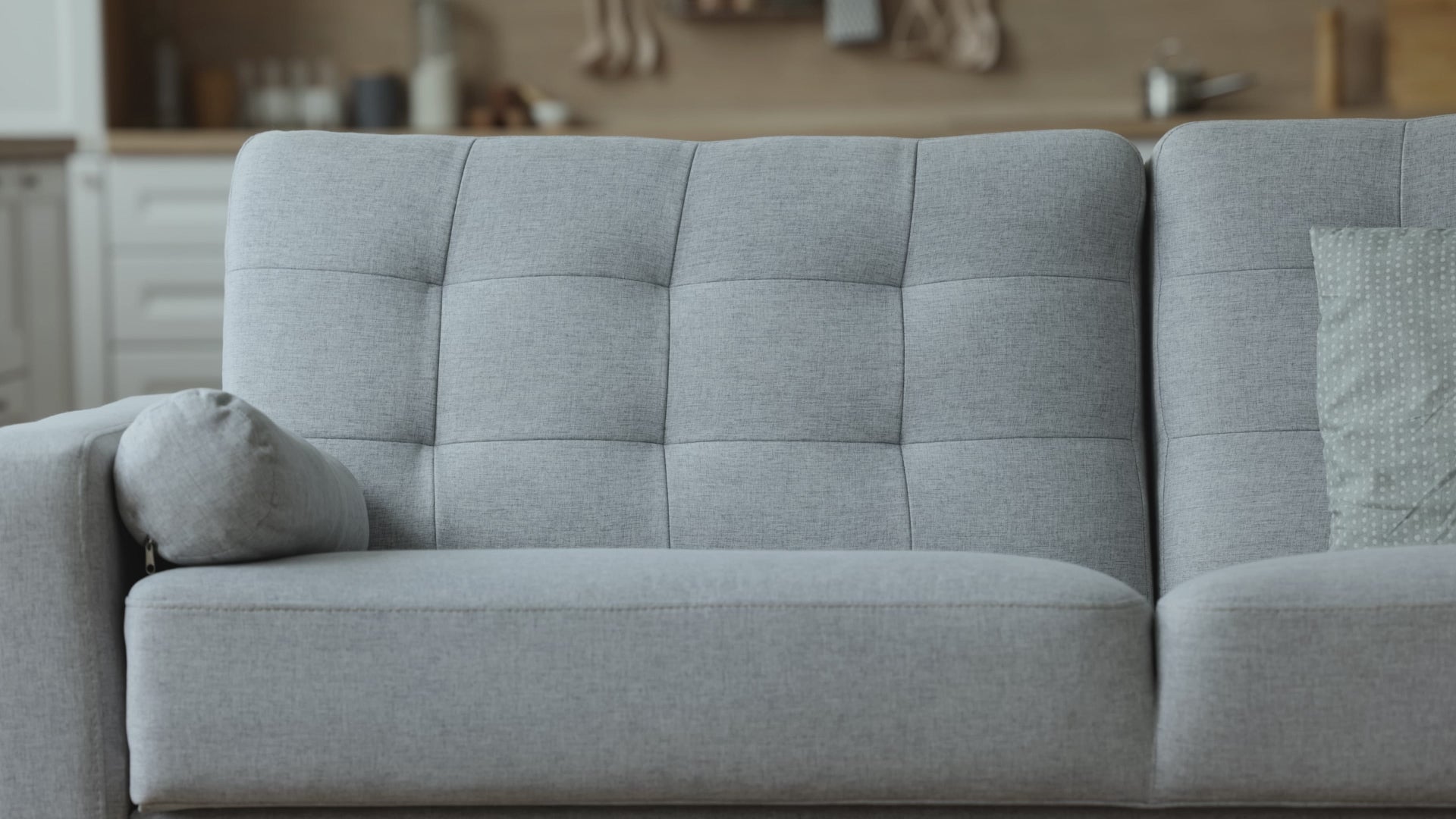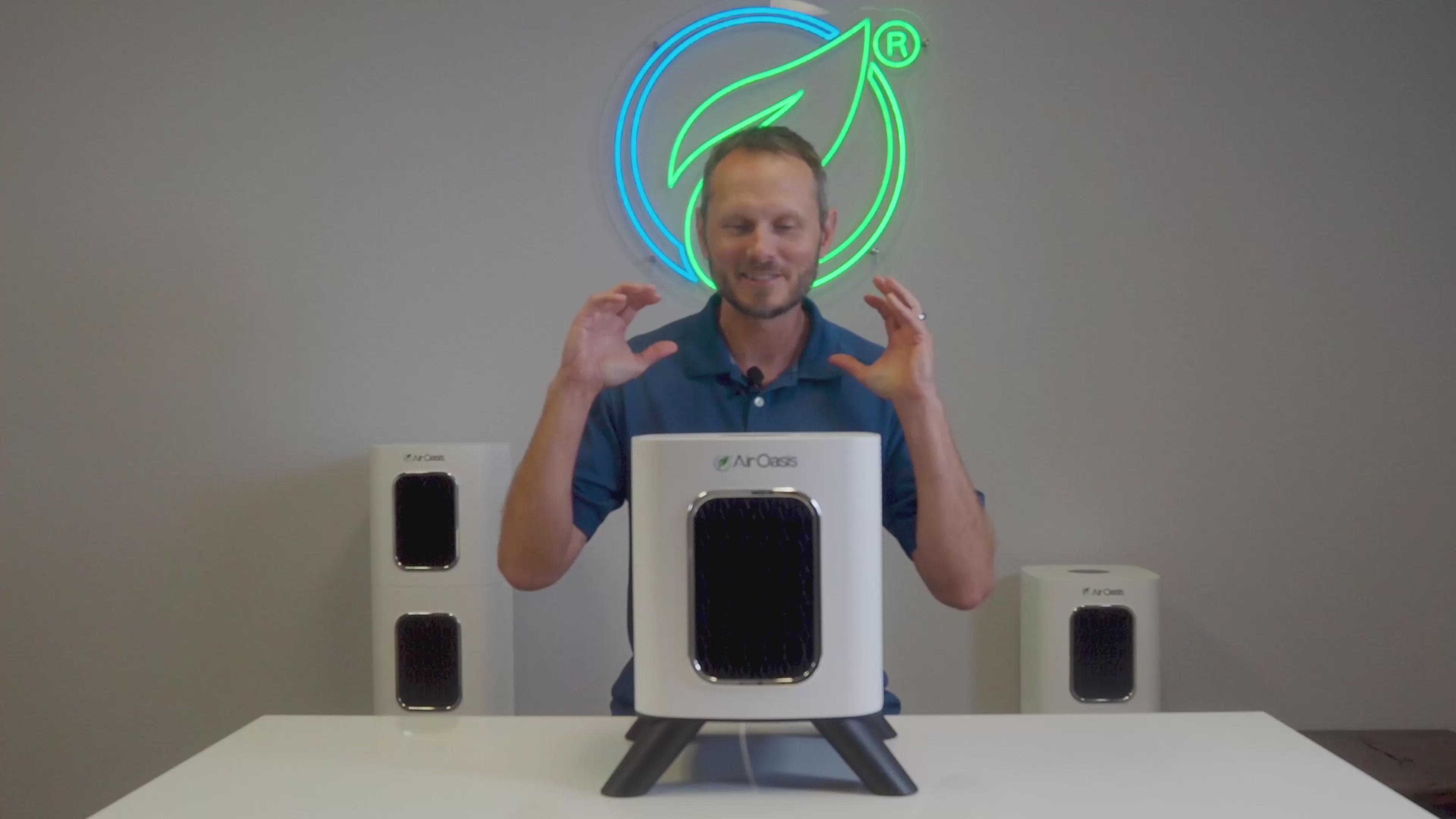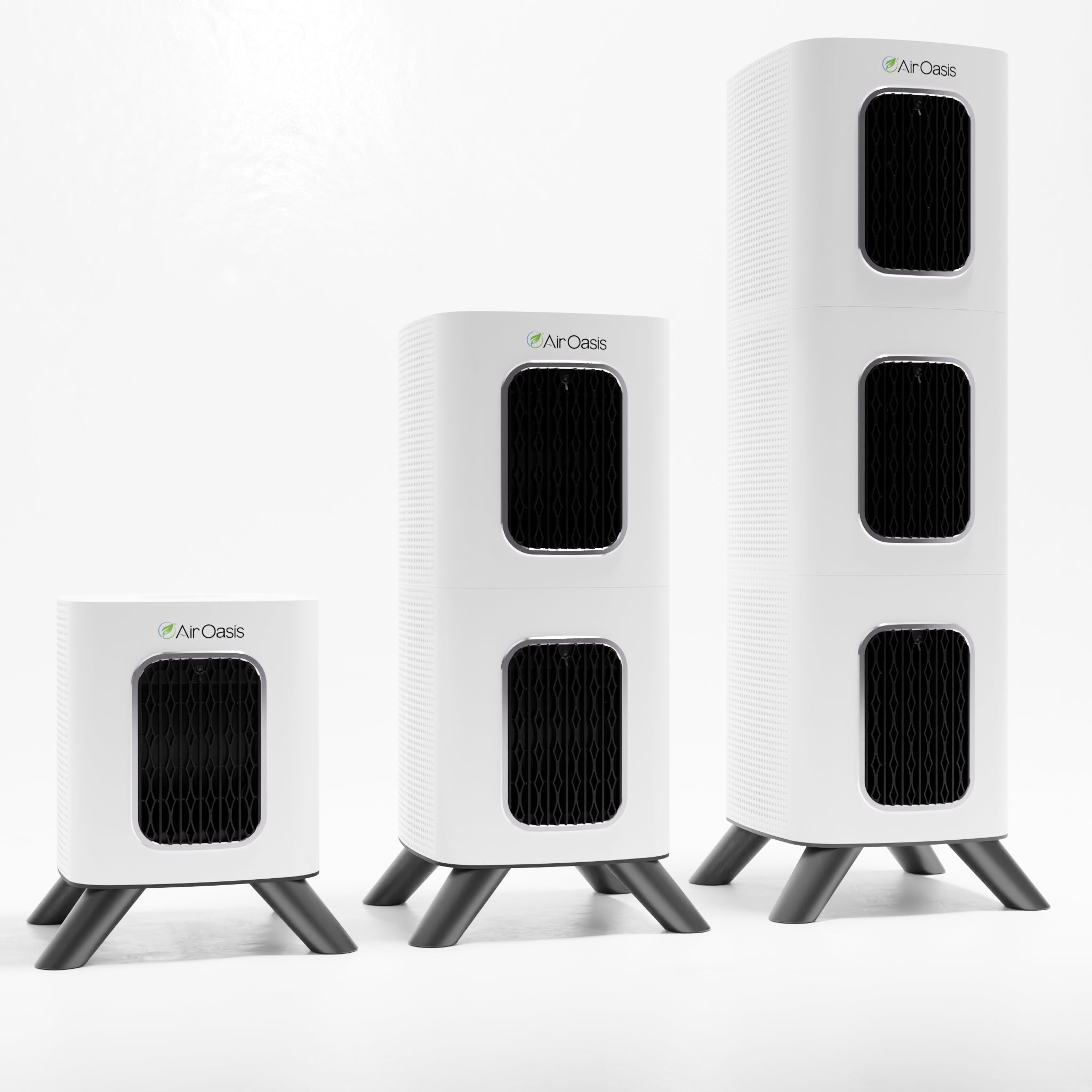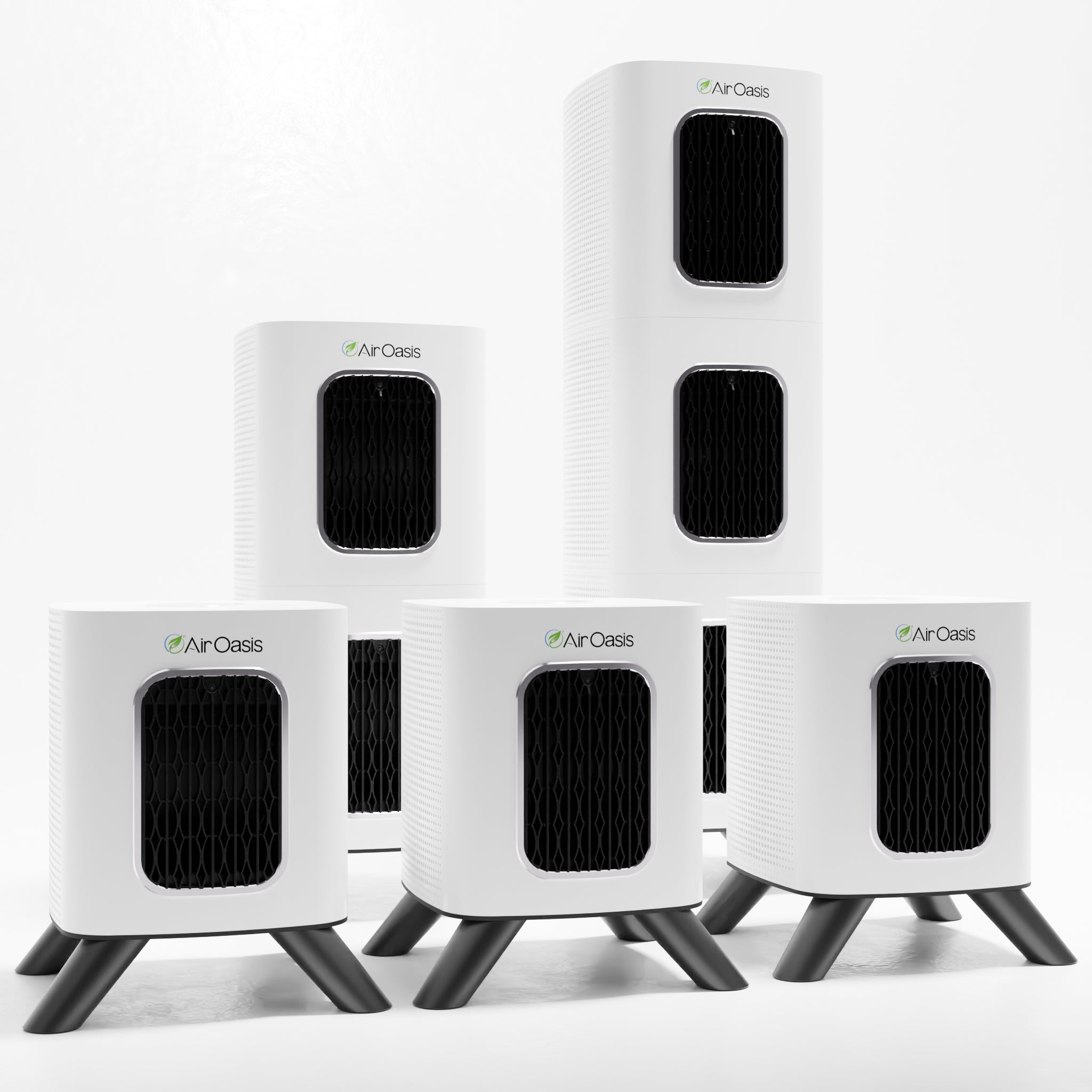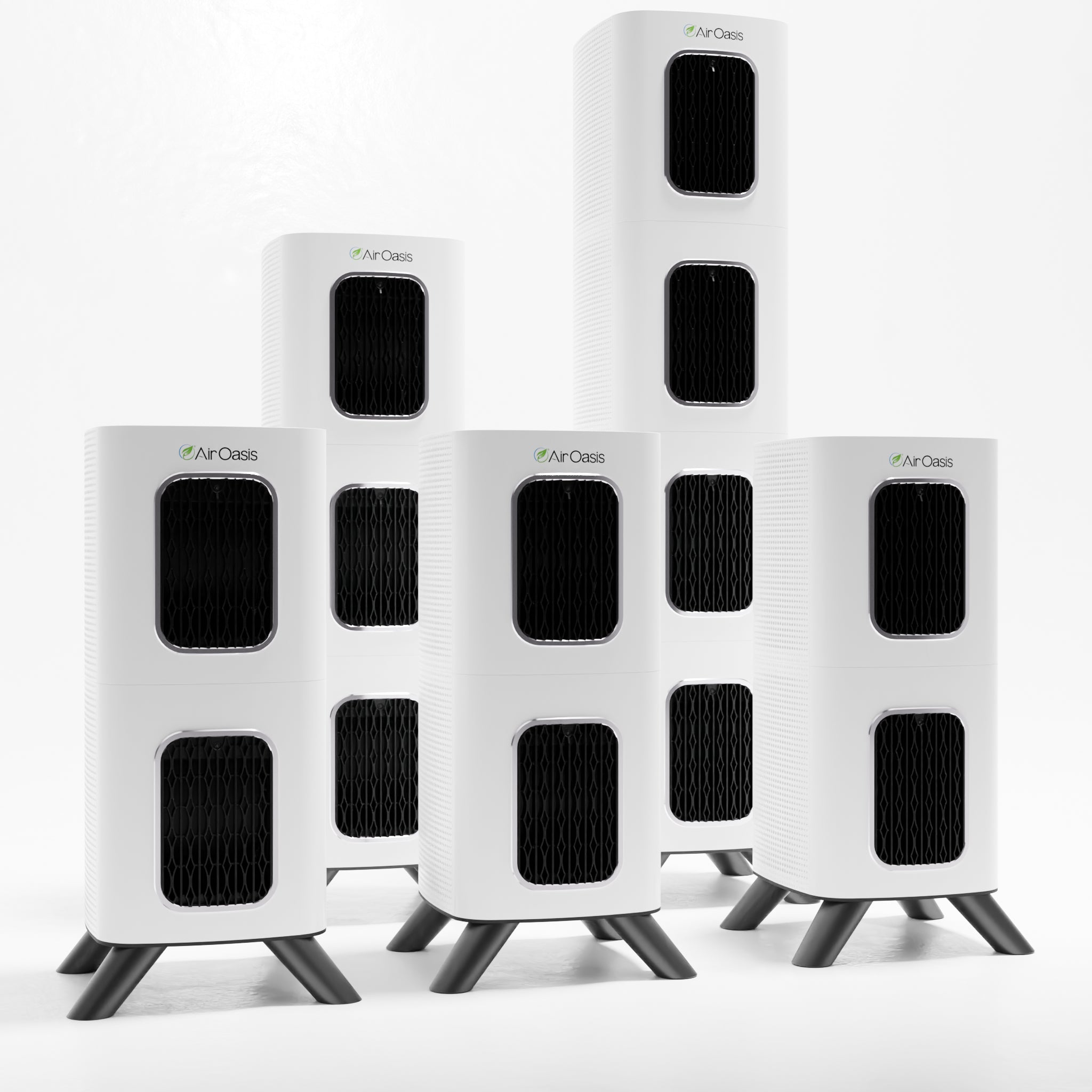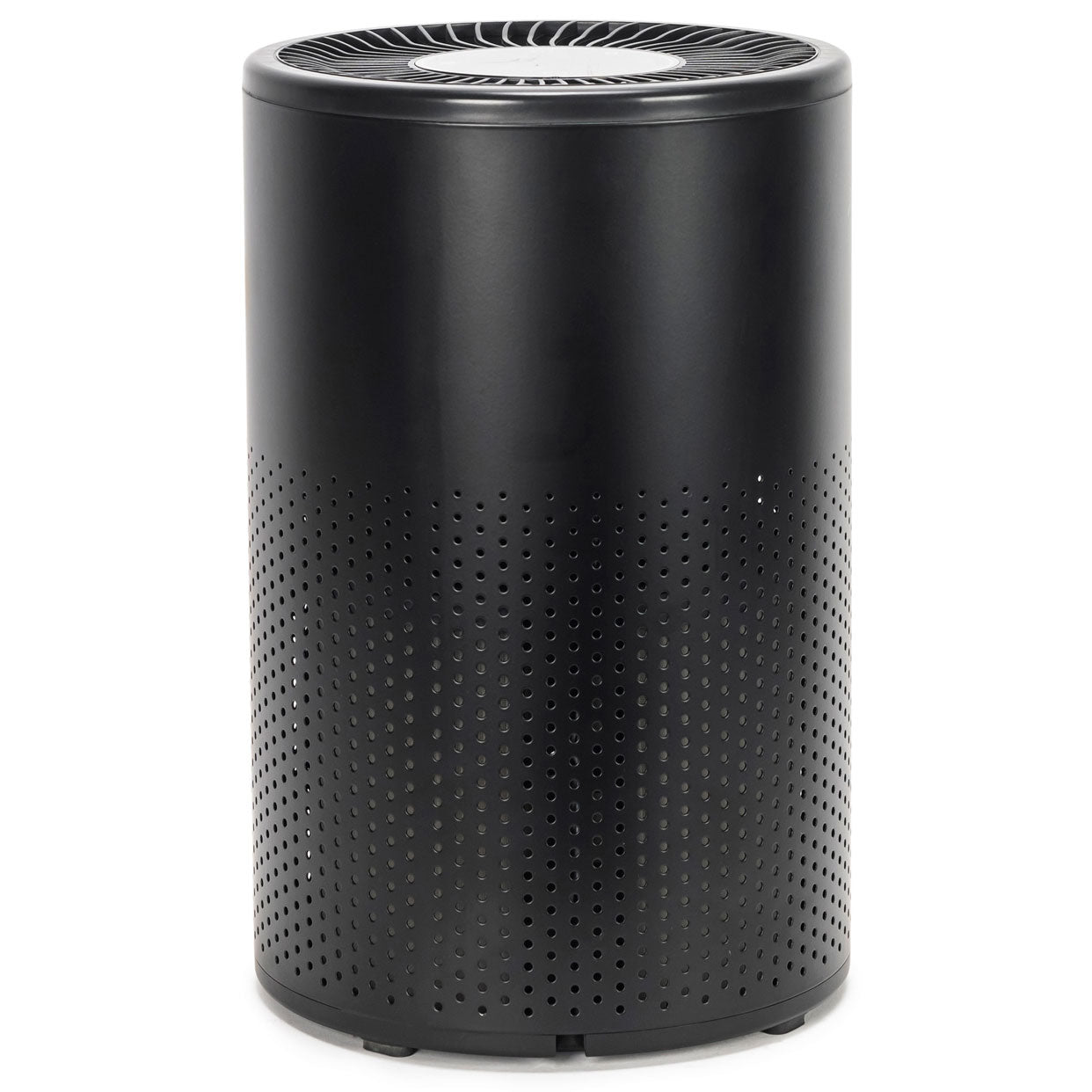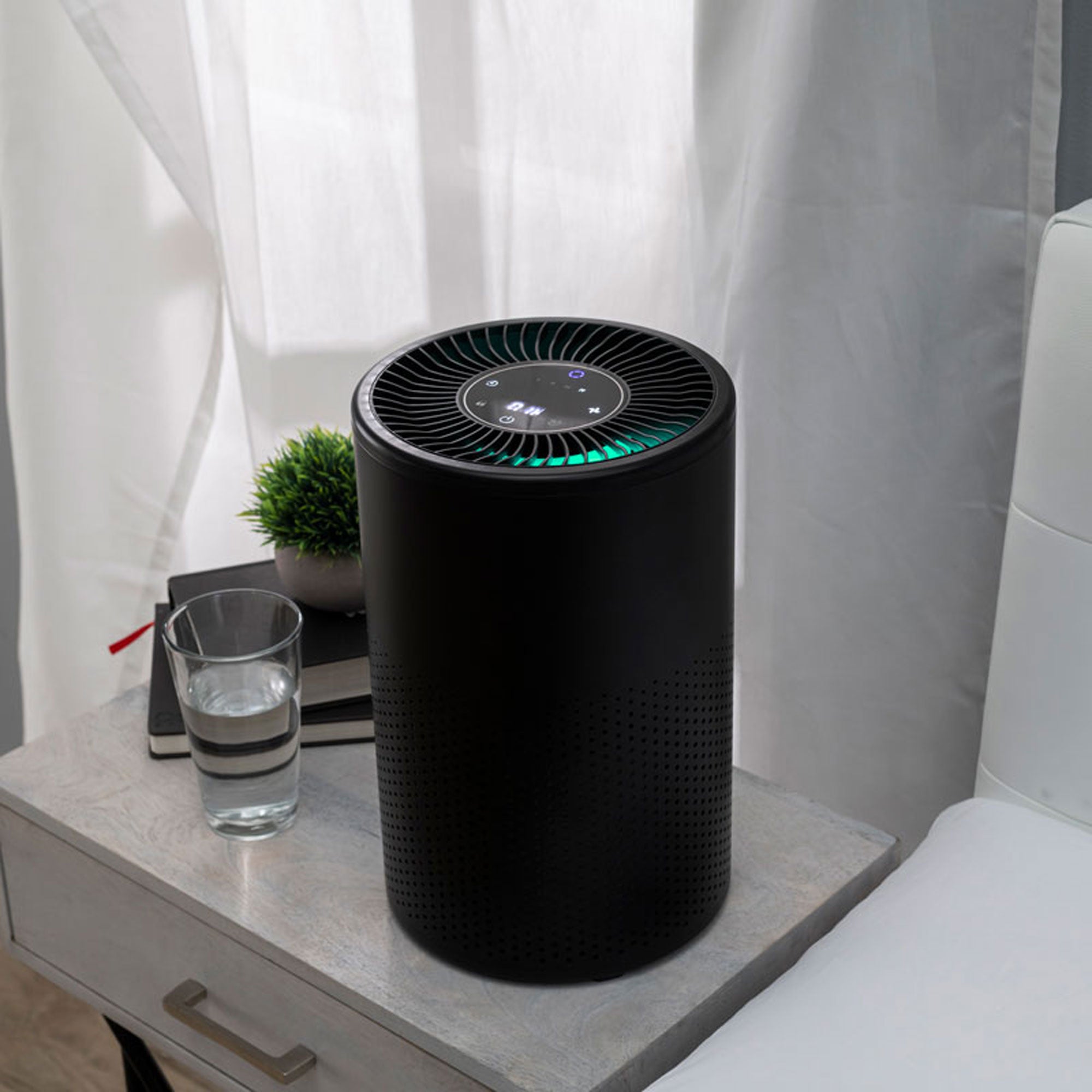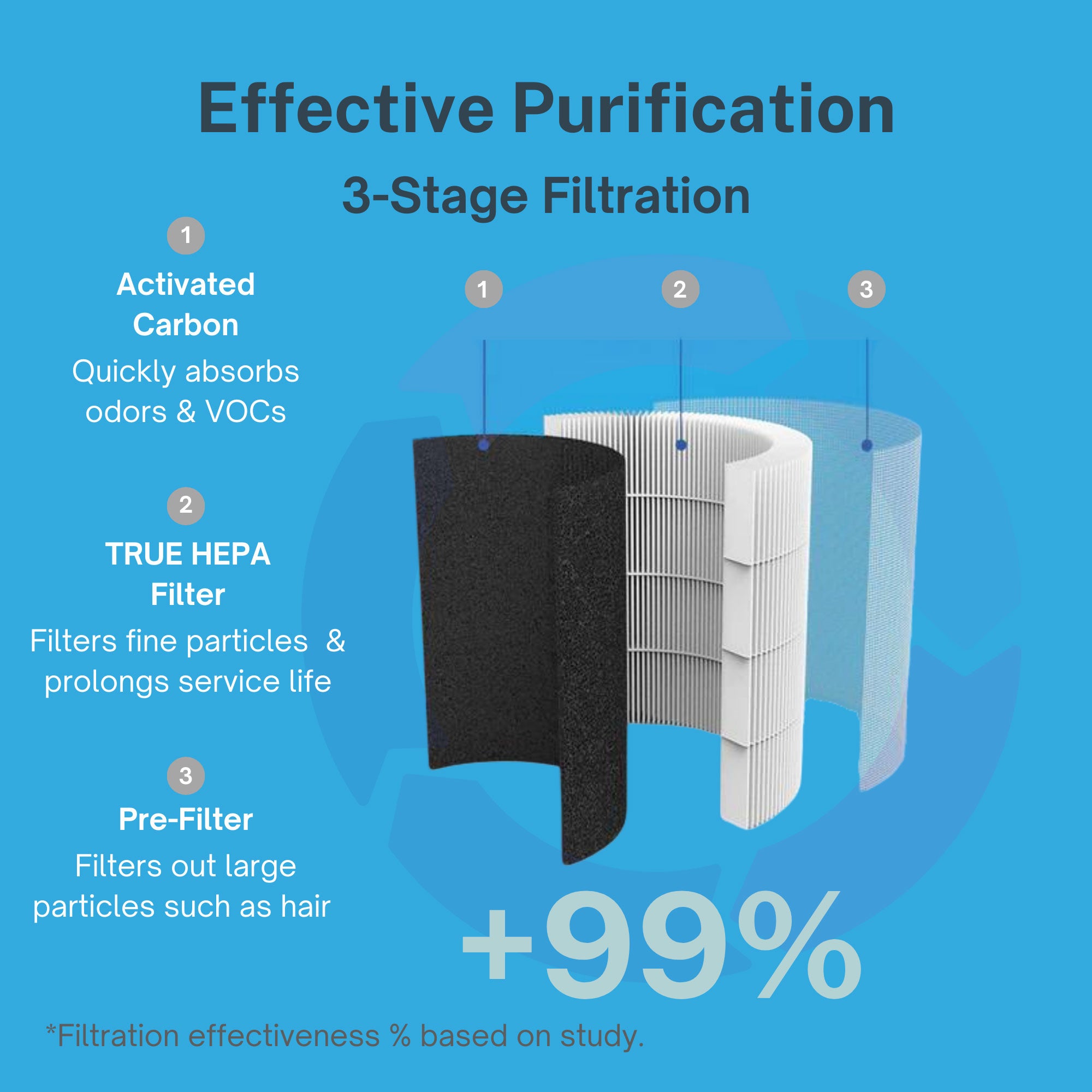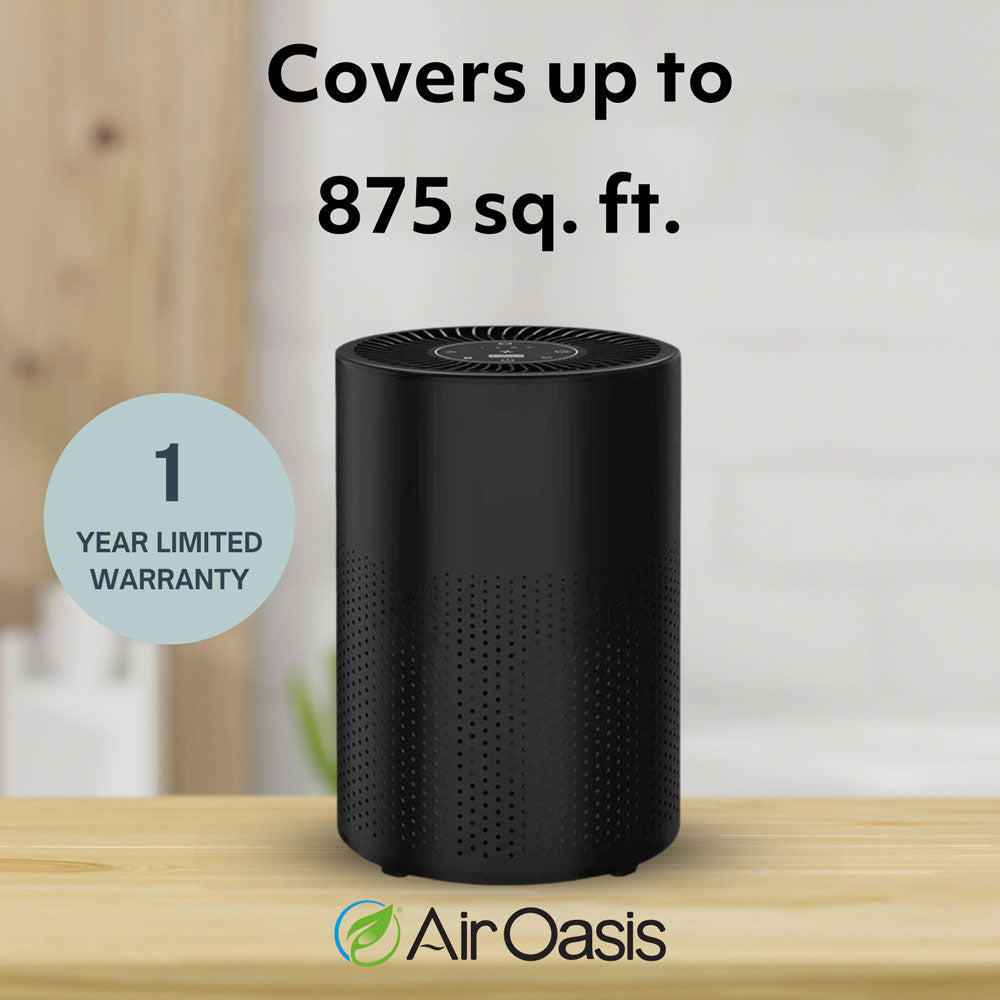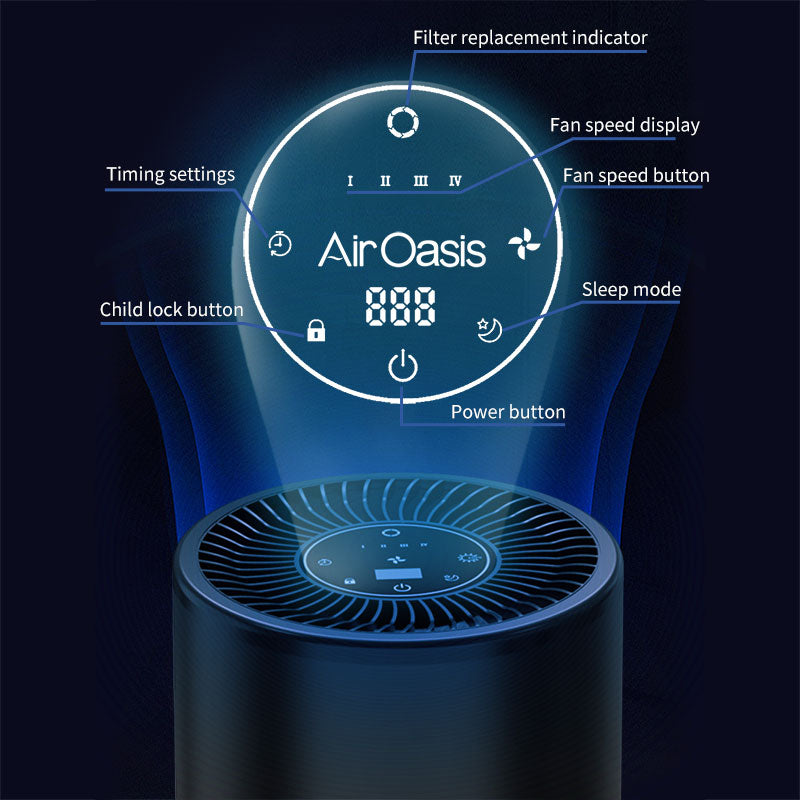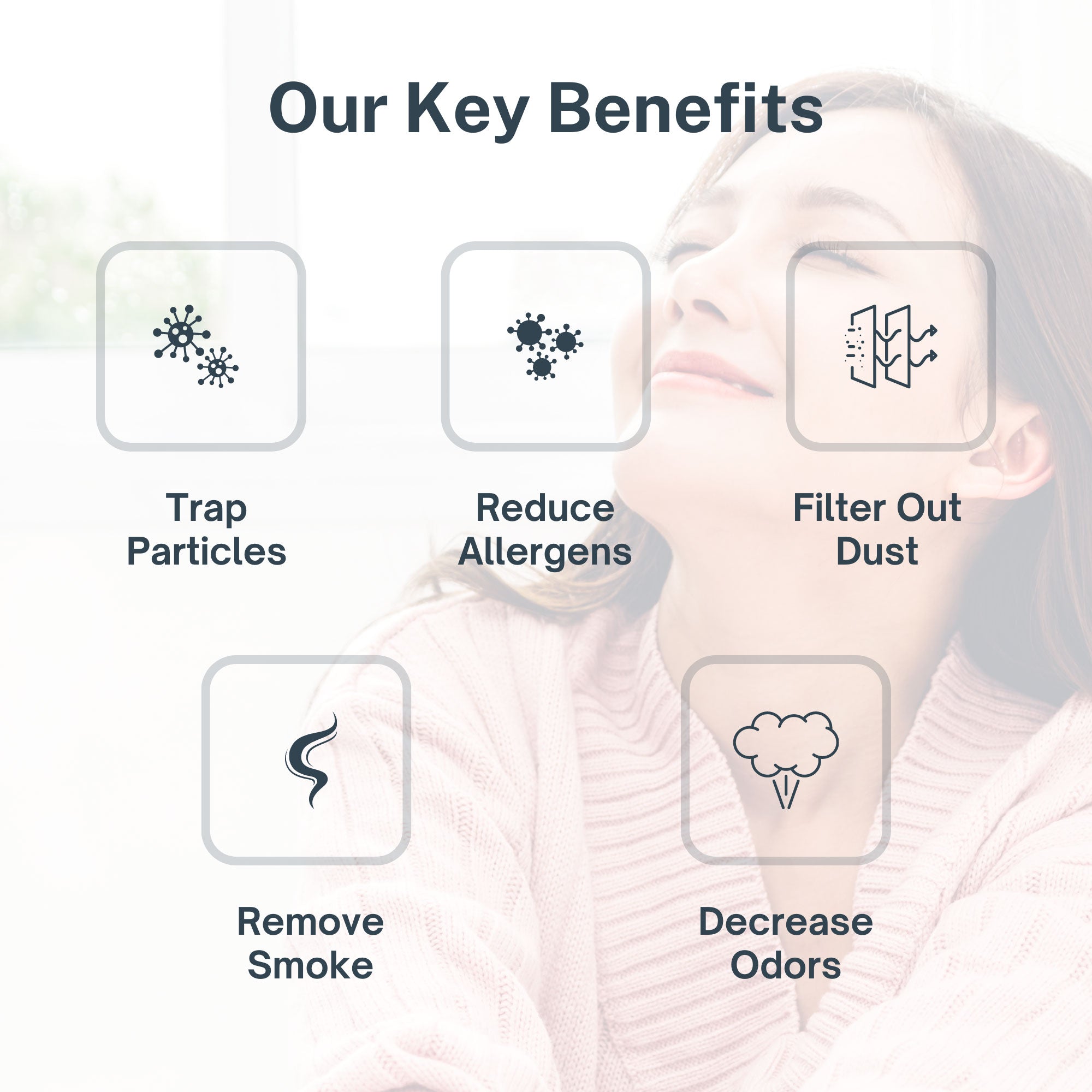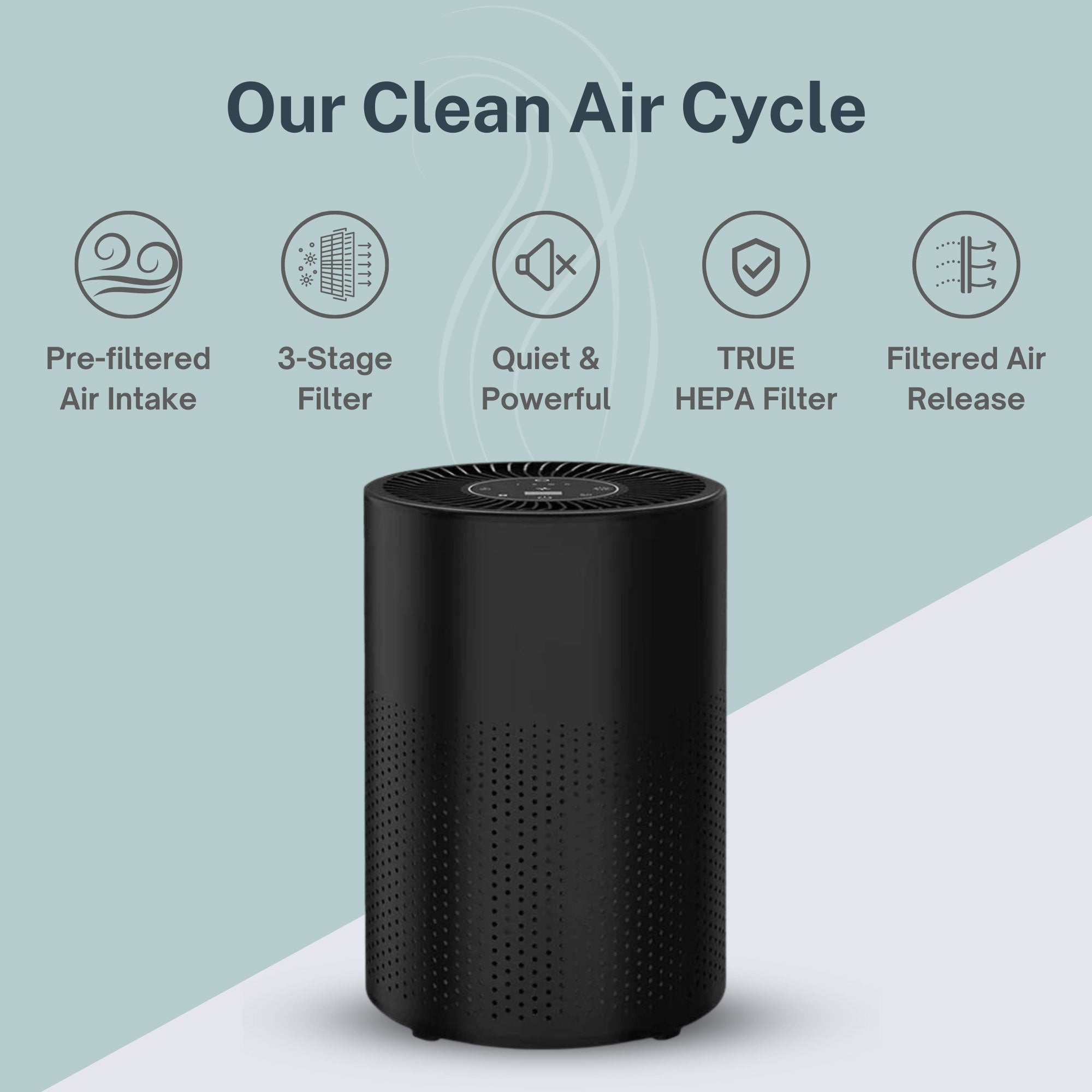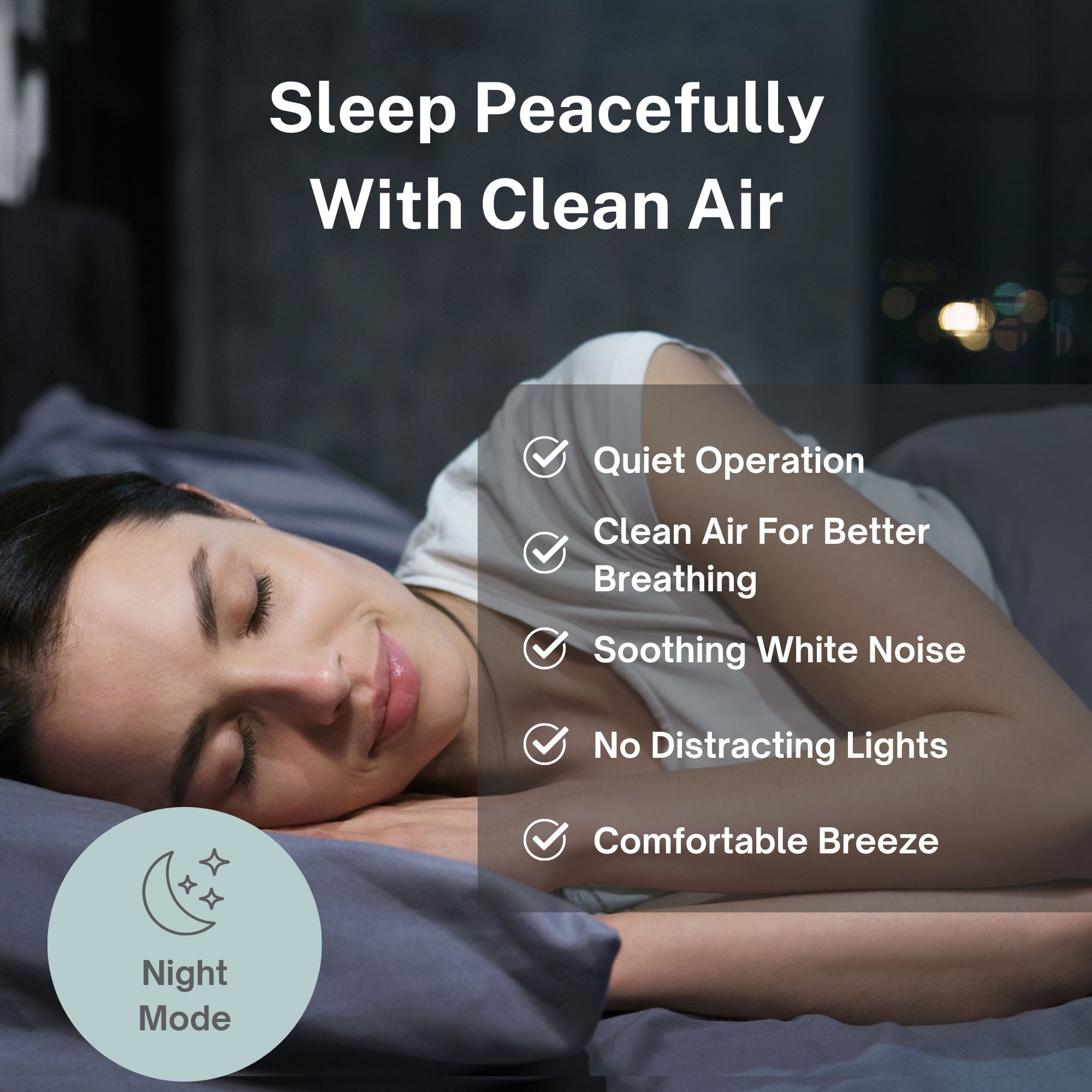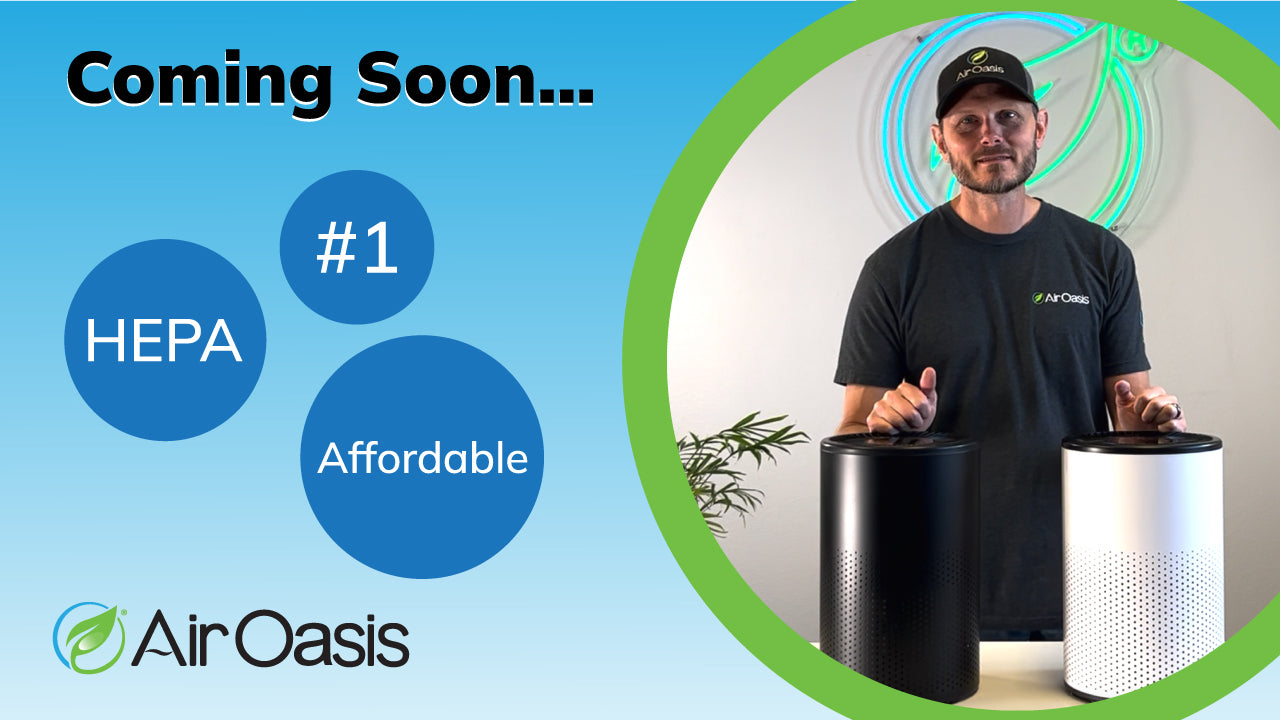Since early 2020, we’ve all dealt with the ups and downs of the COVID-19 pandemic. We’ve grown accustomed to wearing masks, social distancing, and grappling with the frustration of new strains and variants that keep this pandemic front and center in our lives. In many ways, the world has changed forever, and the way we approach public health and our own health will never be the same.
While we at Air Oasis fully acknowledge that this is hard, and our utmost compassion goes out to those who have seen the worst of the pandemic, we also know that there have been important learnings. At the forefront is the fact that airborne diseases, like coronaviruses, can represent a real, ongoing threat to our wellness. As an air purification company, we’ve had the distinct privilege of being active and proactive throughout the pandemic, providing individuals, families, and businesses with expertly manufactured air purifiers.
To shop our air purifiers now, tap or click here.
Air Purifiers and COVID-19: What Does the Research Say?
More reliable research than ever has been conducted on the effectiveness of air purifiers and airborne viruses.
If you’re wondering whether air purifiers help with COVID-19, here is a summary of research from the past few years that will support your own understanding.
Centers for Disease Control and Prevention Study
On July 9, 2021, a report called the “Efficacy of Portable Air Cleaners and Masking for Reducing Indoor Exposure to Simulated Exhaled SARS-CoV-2 Aerosols” was released by the Centers for Disease Control and Prevention (CDC). The study simulated a meeting between two people through aerosols. Portable HEPA air purifiers were placed in the room and a comparison was made between air quality with masking alone and air quality with HEPA. These were the findings:
“Without the HEPA air cleaners, universal masking reduced the combined mean aerosol concentration by 72%. The combination of the two HEPA air cleaners and universal masking reduced overall exposure by up to 90%. The HEPA air cleaners were most effective when they were close to the aerosol source. These findings suggest that portable HEPA air cleaners can reduce exposure to SARS-CoV-2 aerosols in indoor environments, with greater reductions in exposure occurring when used in combination with universal masking.”
Airborne SARS-CoV-2 in Hospital Settings: Cold Spring Harbor, BMJ, Yale Study
A study published on September 22, 2021, a research team from three organizations — Cold Spring Harbor Laboratory, BMJ, and Yale University — reported on a crossover study of portable air filtration in a hospital setting.
Here is what they discovered:
“Airborne SARS-CoV-2 was detected in the ward on all five days before activation of air/UV filtration, but on none of the five days when the air/UV filter was operational; SARS-CoV-2 was again detected on four out of five days when the filter was off. Airborne SARS-CoV-2 was infrequently detected in the ICU. Filtration significantly reduced the burden of other microbial bioaerosols in both the ward (48 pathogens detected before filtration, two after, p=0.05) and the ICU (45 pathogens detected before filtration, five after p=0.05).”
Their conclusion was that the data demonstrates a feasibility for using air filters to reduce the risk of catching SARS-CoV-2 in a hospital setting.
Portable Air Cleaners and HEPA Filters: Summary of 11 Published Studies
In a review article published in SAGE Journals on June 8, 2021, a team of researchers summarized the 11 published studies from various entities, including the World Health Organization, Embase, Cochrane Databases, and Medline. All of the studies tested the effectiveness of a HEPA air filter against aerosolized airborne particles.
Their conclusion was that “Portable air cleaners (PACs) represent an affordable option to enhance air filtration. . . . HEPA filter–based PACs—combined with HVAC systems or as stand-alone air decontamination systems—remove SARS-CoV-2 surrogate particles effectively and may be considered in indoor rooms with limited air ventilation to reduce turnover times after AGPs and medical procedures in general.”
HEPA Air Purifiers Against Viral Infection: Air Oasis
At Air Oasis, we are research-driven in all we do. We have had third-party labs conduct extensive testing on all of our air purifier technology, and have seen firsthand the result it can have in removing bacteria and deactivating viruses. This is achieved through multistage filtration, meaning we use not only HEPA but also UV light and bi-polar ionization.
We have documented numerous scientific studies on air purifiers for viruses and bacteria,
STUDY: MERS Coronavirus and AHPCO® Ionization
- Within one hour, the virus was reduced by 99.792%
- Within two hours, the virus was reduced by 99.948%
- Within four hours, the virus was reduced by 99.997%
STUDY: Airborne Viruses and AHPCO® Ionization
The test virus was sprayed into a chamber for 15 minutes. The standard for effectiveness required a two-digit reduction within 90 minutes. The Air Oasis air purifier caused a net reduction rate of 99.5%.
STUDY: Reduce H1N1 Using iAdaptAir®
Within 20 minutes, the viral load had reduced by 99.99%. The iAdaptAir® was proven effective at inactivating the virus.
To see original source material on each of these studies, visit this page next.
Related: Read about Air Purifiers and the Delta Variant
The Environmental Protection Agency Statement
At Air Oasis, we are researchers and technologists. It is very important to us that we don’t reinterpret results to categorically claim that air purifiers will protect you from COVID-19. The EPA’s statement is a helpful summary of the power and limitations of air purification:
“When used properly, air purifiers can help reduce airborne contaminants including viruses in a home or confined space. However, by itself, a portable air cleaner is not enough to protect people from COVID-19. When used along with other best practices recommended by the Centers for Disease Control and Prevention, operating an air cleaner can be part of a plan to protect yourself and your family.”
It is important that you, your family, your school, and your business have a holistic plan to safeguard against the spread of any illness. This includes all of the measures we’re familiar with — like regularly cleaning and sanitizing surfaces — as well as using a high-quality air purifier that can reduce viruses and bacteria in the air.
COVID-19 and Air Purifiers: Protect Your Home, Office, School, and More
At Air Oasis, we care about your wellbeing. The truth is that clean air may become a necessity for all of us, and air purifiers with HEPA and multi-stage filtration have been proven most effective against COVID-19.
The iAdaptAirⓇ is the best choice to improve indoor air quality, and has all of the right air purification technology that has been proven to remove viruses and bacteria from the air.
